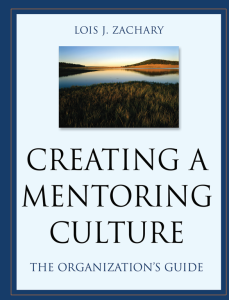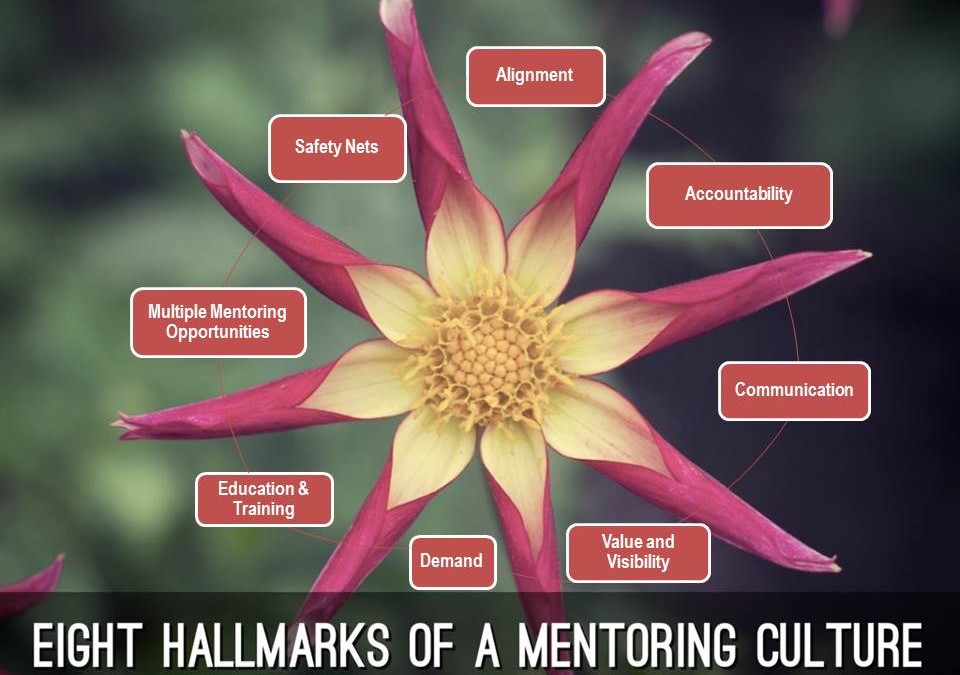Mentoring at “Ideal Organization” (IO) grew out of a formal program for high potentials. The initial program created such a buzz throughout IO that now, ten years later, its participants are still committed to mentoring others and initiating mentoring opportunities in their own organizations. Several years ago an organizational survey revealed that in addition to one-on-one informal mentoring and formal mentoring programs, multiple groups actively engaged in mentoring (i.e., women’s executive mentoring, technical mentoring, and cross-functional mentoring). Leaders regard mentoring as part of their responsibility to informally mentor employees who show promise. Those charged with managing, supporting and coordinating mentoring efforts at IO monitor progress, measure results and work with teams throughout the organization to integrate mentoring process improvements. In addition, they keep an internal focus on mentoring. They coordinate mentoring efforts to make sure that all mentoring programs align with one another other and with the organization’s culture.
Mentoring at IO is always in motion and constantly creating learning bridges that empower individuals to transform Ideal so that it continues to live up to its name. The leaders at IO worked through a number of steps and phases in developing its mentoring culture. It’s still a work in progress.
Sounds great, yes?
Is your organization committed to making an ongoing investment in mentoring? If you’re serious about mentoring and are committed for the long haul, read on.
A mentoring culture creates a continuum of expectation about mentoring and establishes a standard of excellence for mentoring practice. It also encourages mentoring excellence by continuously creating readiness for mentoring within the organization, facilitating multiple mentoring opportunities, and building in support mechanisms and safety nets to ensure individual and organizational mentoring success.
 What’s more, it:
What’s more, it:
- Establishes ownership for mentoring within the organization
- Promotes shared responsibility
- Maximizes resources
- Maintains integrity
- Facilitates knowledge utilization
- Supports integration of key processes into the organization
- Creates openness to learning through mentoring
- Shortens ramp up time
What are you waiting for? To learn more, purchase your copy of Creating a Mentoring Culture today. It will guide you through each of the eight hallmarks that contribute to creating a vibrant and full mentoring culture.



